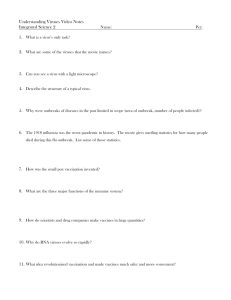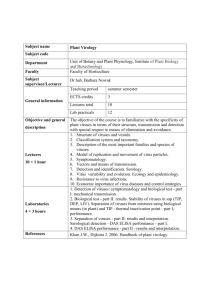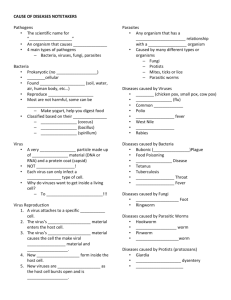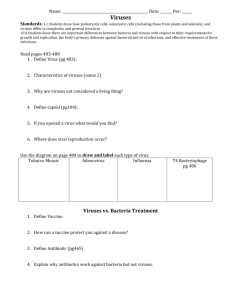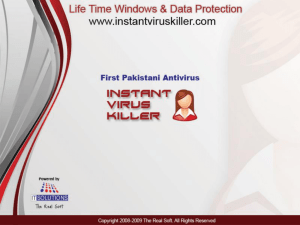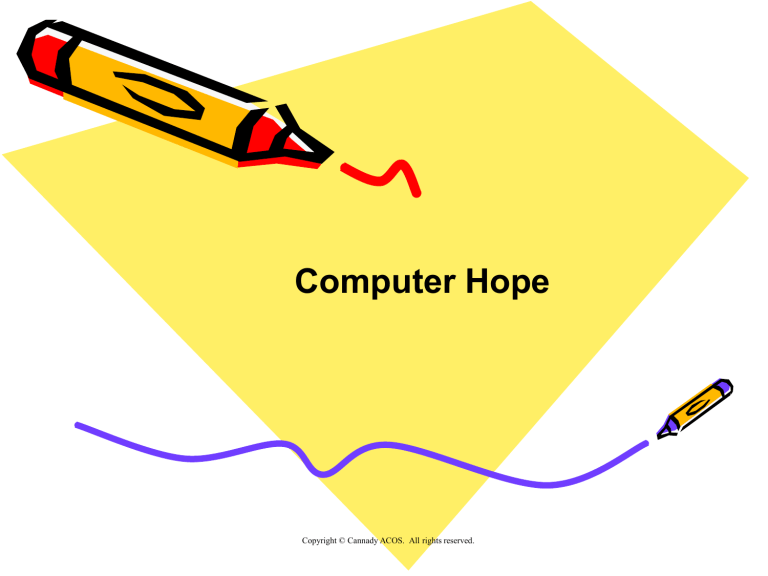
Computer Hope
Copyright © Cannady ACOS. All rights reserved.
OBJECTIVE
The objective of this lesson is for each student to
diagnose hardware and software problems-Part 2
• Sample(s) of Behavior (SOBs):
–
–
–
–
–
Describe computer preventive maintenance
Describe the FAB 4
Identify steps in troubleshooting
Identify Beep Codes
Describe the importance of antivirus and
security software
Computer Preventive Maintenance
Wouldn’t it be great if your computer was programmed to
perform preventive maintenance on its own? This would
automatically prevent various computer problems and
increase the efficiency and life of your PC. While many
computer maintenance tools have become partially
automatic, it still takes your initiative to install and use
these programs.
Moreover, preventive maintenance not only involves deploying
and using the right tools, but also adopting the correct
computer practices by the user.
It is also a pity that computer manufacturers do not provide a
manual or step-by-step guide for PC maintenance. They
simply pre-install a few tools and assume that you will use
them without bothering to know whether you know how to
use them or not. This article provides basic PC maintenance
tips that will help you prevent some of the most common
computer problems.
Computer Preventive Maintenance
Continued
1. Keep your hard drive clean and uncluttered:
This is one of the easiest tips to follow yet you may have
ignored your hard drive for a while. If you find that your
computer is slow and prone to errors, the starting point is to
begin by cleaning your hard disk. You simply have to make
frequent use of two tools that will quietly run in the
background while you go about doing your work. These are:
– Disk Cleanup Utility: Main function of this tool is to
eliminate unwanted files from your hard disk
– Disk Defragmenter Utility: Main function is to organize
your files to make their access faster
It is easy to ignore these two System tools provided by your
operating system but if you make optimal use of these tools,
you will be able to prevent a lot of computer problems.
Computer Preventive Maintenance
Continued
2. Perform regular Registry Cleanup:
You may not be aware but an unhealthy Windows registry is
one of the main reasons for computer issues and errors. The
Windows registry is extensively used to store critical
configuration information of your system including operating
system, computer applications, and hardware as well as user
settings. Since the registry deals with huge amounts of
information, there are always chances of unwanted information
being left behind that may lead to problems.
To clean your registry, you can make use of any of the good
registry cleaners available in the market. These tools not only
provide registry cleaning service, but also provide registry
defragmentation, registry backup and restore facilities.
Computer Preventive Maintenance
Continued
3. Protect your PC from external threats:
Since the Internet became popular, your PC has become more
vulnerable to threats from the outside, which includes malicious
software like virus, spyware and online criminals trying to hack
into your system. You need to install the following three tools
to protect your PC from external threats:
Anti-Virus:
To prevent viruses, worms and Trojans
from attacking.
Anti-Spyware: To prevent Spyware and Adware from
sabotaging your PC.
Firewall:
To prevent unauthorized people from
gaining entry into your computer.
Computer Preventive Maintenance
Continued
These days many anti-malware manufacturers offer a common
software suite that carries all these products in one pack.
You must install tools of reliable brands only and always have
them running in real time. You must also update them
frequently so that they are equipped to protect you from the
latest types of malware.
4. Backup, Backup, Backup:
Backup your data on a portable drive and secure it. These are
the most important bits on your computer and can not be
replaced!
Remember the FAB 4
1. Clean Hard Drive
a. Chkdsk /f (Disk Utility)
b. Defrag (Disk Utility)
2. Clean Registry
3. Anti-Virus / Anti-Spyware (Security Software)
4. Backup, Backup, Backup
Troubleshooting Steps
1. Establish symptoms (Recognize there is a problem)
2. Identify the affected area (Verify there is a problem)
3. Establish what has changed (Analyze / Breakdown
Problem)
4. Select the most probable cause (Identify Problem)
5. Implement a Solution (Replace / Repair Problem)
6. Test the result (Test Solution)
7. Recognize potential effects of the solution.
8. Document the solution
Common Troubleshooting Techniques &
Strategies
Here are five common-sense techniques and strategies to solve common
computer hardware problems.
(1) Trial-and-error
Personal computers are highly modular by design. The most powerful
trouble-shooting technique is to isolate the problem to a specific
component by trial-and-error. Swap compatible components and see if
the system still works. Try different peripherals on different machines
and see if the same problem occurs. Make one change at a time.
(2) "It's the cable, s-----."
More than 70% of all computer problems are related to cabling and
connections. Ensure all cables are connected firmly. IDE and floppy ribbon
cables and power cables can often go loose. Ensure microprocessor, memory
modules, and adapters such as video card and sound card are inserted
correctly and didn't "pop-up" during transportation.
Common Troubleshooting Techniques &
Strategies
Continued
(3) Don't be frustrated!
Don't be afraid of computer problems. It is often the best opportunity to learn.
Trouble-shooting is part of the fun of owning a computer. Imagine the satisfaction
you could get by solving a problem yourself.
Of course the fun could ran out quickly once you are frustrated and have spent
too much time on the same problem. If you feel frustrated, it's time to leave it
for a while and go back with some new ideas or call someone who can help. Rule of
thumb: You shouldn't spend more than three hours on the same problem at
one time.
(4) Take notes!
Take notes of what you have done and all the error messages. You may need to
use them later. For instance, when you see an unusual blue screen with an error
message, copy the entire message onto a piece of paper. In many situations, that
message may point to the right direction in getting the problem solved quickly.
(5) Take a look?
It's OK to open a computer case and take a look inside. There is only 5V and 12V
DC voltage supplied to the components outside the power supply. Those who have
never seen the inside of a computer are often amazed by how simple it
looks. Of course, still always power down and unplug the power cord
first.
IMPORTANCE OF VIRUS AND
SECURITY SOFTWARE
• One of the biggest fears among new computer users is
being infected by a computer virus or programs designed to
destroy their personal data. Viruses are malicious
software programs that have been designed by other
computer users to cause destruction and havoc on a
computer and spread themselves to other computers
where they can repeat the process.
• Once the virus is made, it is often distributed through
shareware, pirated software, e-mail, P2P programs, or
other programs where users share data.
IMPORTANCE OF VIRUS AND
SECURITY SOFTWARE
Continued
• A computer virus is a software program that was first
written Rich Skrenta in 1982 who was a 15-year old high
school student. Known as The Elk Cloner this virus spread
to other computers by monitoring the floppy drive and
copying itself to any floppy diskette that was inserted into
the computer. Once a floppy diskette became infected it
would infect all other computers that disk was inserted
into, each computer that was infected would then infect
every floppy diskettes inserted into it. A computer that was
infected would also display a short poem on every 50th
boot.
• Computer users can help protect themselves against
computer viruses, malware, and other computer security
threats by installing an antivirus protection program.
IMPORTANCE OF VIRUS AND
SECURITY SOFTWARE
Continued
•
In the past the majority of computer viruses were contracted
from users sharing data using floppy diskettes. However, with the
increased popularity of the Internet most computer viruses are
contracted today through e-mail and by downloading software over
the Internet or P2P sharing or file sharing.
•
Below is a listing of some of the different properties a computer
virus is capable of having and what the particular property is
capable of doing. Keep in mind that not all viruses will have every
one of these abilities.
•
Your computer can be infected even if files are just copied.
Because some viruses are memory resident, as soon as a diskette
or program is loaded into memory, the virus then attaches itself
into memory and then is capable of infecting any file on the
computer you have access to.
IMPORTANCE OF VIRUS AND
SECURITY SOFTWARE
Continued
•
•
•
•
•
•
Can be Polymorphic. Some viruses have the capability of modifying their code,
which means one virus could have various amounts of similar variants. This is also
true with e-mail viruses that change the subject or body of the message to help
from being detected.
Can be memory or non-memory resident. As mentioned earlier a virus is
capable of being either memory resident where the virus first loads into
memory and then infects a computer or non-memory resident where the virus
code is only executed each time a file is opened.
Can be a stealth virus. Stealth viruses will first attach itself to files on the
computer and then attack the computer; this causes the virus to spread more
rapidly.
Viruses can carry other viruses. Because viruses are only software programs a
virus may also carry other viruses making the virus more lethal and help the
primary virus hide or assist the primary virus with infecting a particular section
of the computer.
Can make the system never show outward signs. Some viruses can hide
changes made, such as when a file was last modified making the virus more
difficult to detect.
Can stay on the computer even if the computer is formatted. Some Viruses
have the capability of infecting different portions of the computer such as the
CMOS battery or master boot record. Finally, if a computer is completely
erased and the virus is on a backup disk it can easily re-infect the
computer.
IMPORTANCE OF VIRUS AND SECURITY
SOFTWARE
Continued
•
Viruses can affect any files; however, usually attack .com, .exe, .sys, .bin, .pif
or any data files - Viruses have the capability of infecting any file; however, will
generally infect executable files or data files, such as word or excel documents that
are opened frequently and allow the virus to try infecting other files more often.
•
Increase the files size - When infecting files, virtues will generally increase the size
of the file; however, with more sophisticated viruses these changes can be hidden.
•
It can delete files as the file is run - Because most files are loaded into memory,
once the program is in memory the virus can delete the file used to execute the virus.
•
It can corrupt files randomly - Some destructive viruses are not designed to
destroy random data but instead randomly delete or corrupt files.
•
It can cause write protect errors when executing .exe files from a write
protected disk - Viruses may need to write themselves to files that are executed;
because of this, if a diskette is write protected, you may receive a write protection
error.
•
It can convert .exe files to .com files - Viruses may use a separate file to run the
program and rename the original file to another extension so the exe is run before
the com.
• It can reboot the computer when executed - Numerous computer viruses
have been designed to cause a computer to reboot, freeze, or perform other
tasks not normally exhibited by the computer.
IMPORTANCE OF VIRUS AND SECURITY
SOFTWARE
Continued
Below are different issues you may experience when you are infected with a virus. Keep in
mind that you also may be experiencing any of the below issues by another computer
related issue and not a virus.
•
•
•
•
•
•
•
•
•
•
•
•
•
•
Deleted files.
Various messages in files or on programs.
Changes volume label.
Marks clusters as bad in the FAT.
Randomly overwrites sectors on the hard disk.
Replaces the MBR with own code.
Create more than one partition.
Attempts to access the hard disk drive, which can result in error messages such as:
Invalid drive specification.
Causes cross-linked files.
Causes a "sector not found" error.
Cause the system to run slow.
Logical partitions created, partitions decrease in size.
A directory may be displayed as garbage.
Directory order may be modified so files, such as COM files, will start at the
beginning of the directory.
IMPORTANCE OF VIRUS AND SECURITY
SOFTWARE
Continued
•
•
•
•
•
•
•
•
•
•
•
•
•
•
Cause Hardware problems such as keyboard keys not working, printer issues, modem
issues etc.
Disable ports such as LPT or COM ports.
Caused keyboard keys to be remapped.
Alter the system time / date.
Cause system to hang or freeze randomly.
Cause activity on HDD or FDD randomly.
Increase file size.
Increase or decrease memory size.
Randomly change file or memory size.
Extended boot times.
Increase disk access times.
Cause computer to make strange noises, make music, clicking noises
or beeps.
Display pictures randomly.
Different and/or undocumented types of error messages.
IMPORTANCE OF VIRUS AND SECURITY
SOFTWARE
Continued
• The recommended method of
detecting and cleaning the computer
from any computer viruses or other
malware is an antivirus protection
program.
IMPORTANCE OF VIRUS AND SECURITY
SOFTWARE
Continued
• On the next slide is a complete list, in
alphabetical order, of companies who
provide antivirus programs and the
platforms they provide protection for.
Clicking on the company link will take you
to information about that company,
including their web page. You can also
purchase many of the below virus
protection programs through our products
page.
Company
Windows
Apple
Linux
Mobile
Free?
AntiVir
Yes
No
Yes
No
Yes
AVG
Yes
No
No
No
Yes
Avira
Yes
No
Yes
Yes
Yes
BitDefend
er
Yes
No
Yes
Yes
No
ClamWin
Yes
No
No
No
Yes
ESET
NOD32
Yes
No
Yes
Yes
No
F-Prot
Yes
No
Yes
No
No
Kaspersky
Yes
Yes
Yes
Yes
No
McAfee
Yes
Yes
Yes
Yes
No
MSE
Yes
No
No
No
Yes
Network
Associates
Yes
Yes
Yes
Yes
No
Panda
Software
Yes
No
Yes
No
No
RAV
Yes
Yes
Yes
No
No
Sophos
Yes
Yes
Yes
No
No
Symantec
(Noton)
Yes
Yes
Yes
Yes
No
Trend
Micro
Yes
No
No
Yes
No
Vipre
Yes
No
No
No
No
Webroot
Yes
No
No
No
No
IMPORTANCE OF VIRUS AND SECURITY
SOFTWARE
Continued
• Below is a listing of different review sites we suggest
looking at to know what may be best antivirus program for
you. We suggest these review pages since they're updated
frequently and run through a complete test with each
program. Click on Link or Report
• http://www.avcomparatives.org/index.php?option=com_content&view=artic
le&id=144&Itemid=152
• Report Click on Report
IMPORTANCE OF VIRUS AND SECURITY SOFTWARE
Continued
Below are come comments we've come across that are common misconceptions when it comes to
computer viruses and other malware.
•
"If I download a file onto a disk, I don't have to worry about a viruses." - This is not
true, just because you've placed a file on a diskette or moved a file from a diskette to your
hard drive does not mean that your computer cannot be infected. Many viruses are memory
resident and capable of loading themselves into memory once a diskette is placed in the
computer.
•
"If I buy sealed software I don't have to worry about viruses." or "If I just buy
registered software I don't have to worry about viruses." - This is not always true, just
because the program may be surrounded in plastic doesn't mean that it cannot be infected
with a virus. When a software program is saved onto a diskette or disc if that computer or
program is infected the virus will attach itself. Although this issue very rarely occurs it is
still a possibility.
"If I don't download anything off of the Internet I don't have to worry about viruses."
- This is definitely not true. Although most companies and web sites will scan the files for
viruses before they make them available to download some may not. In addition many people
create a site or a file to download with the intention of spreading a virus, spyware, Trojan
horses, or other malware.
•
•
"If I just read my e-mail, I will not have to worry about viruses." - Not true; there are
viruses out there that are distributed through e-mail; also, files can be attached with e-mail
and if executed can infect the computer. Today this is one of the most common ways
computer viruses spread around the world.
•
"If I don't get on the Internet I don't have to worry about viruses." - This,
unfortunately, is not the case. Although many viruses are spread over the Internet today it
is still possible to contract a computer virus form any diskette or disc you put in the
computer.
•
"You can contract viruses from just looking at web pages." - Not true. However, you
can contract a virus if you download and execute a file from that web page. In addition
spyware and other scripts can be executed from just viewing a web page. Although these
programs are not designed to delete files on your computer they should be considered a
privacy violation.
COMPUTER POST / BEEP CODES
•
The computer power-on self-test (POST) tests the computer
to make sure it meets the necessary system requirements and
that all hardware is working properly before starting the
remainder of the boot process. If the computer passes the
POST the computer will have a single beep (with some computer
BIOS manufacturers it may beep twice) as the computer starts
and the computer will continue to start normally. However, if the
computer fails the POST, the computer will either not beep at all
or will generate a beep code, which tells the user the source of
the problem.
•
For more on beep codes, please visit the following website:
http://www.computerhope.com/beep.htm
Summary
• Computer Preventive Maintenance
• Troubleshooting Steps
• Common Troubleshooting Techniques &
Strategies
• Importance of Virus and Security Software
• Computer Post / Beep Codes
Computer Supporting Sites
Computer Help and Support Site
http://www.computerhope.com/hardqa.htm
Computer Help and Support for Drivers, Firmware and Software
http://www.computerhope.com/drivers
Buying a Computer Tips
http://www.computerhope.com/btips/index.htm
Computer Software Questions and Answers
http://www.computerhope.com/sofqa.htm
Basic computer troubleshooting
http://www.computerhope.com/basic.htm#03
Sources
Computer Hope (2010)
http://www.computerhope.com/vlist.htm#02
http://www.computerhope.com/vlist.htm
http://www.computerhope.com/beep.htm
QUESTIONS????

